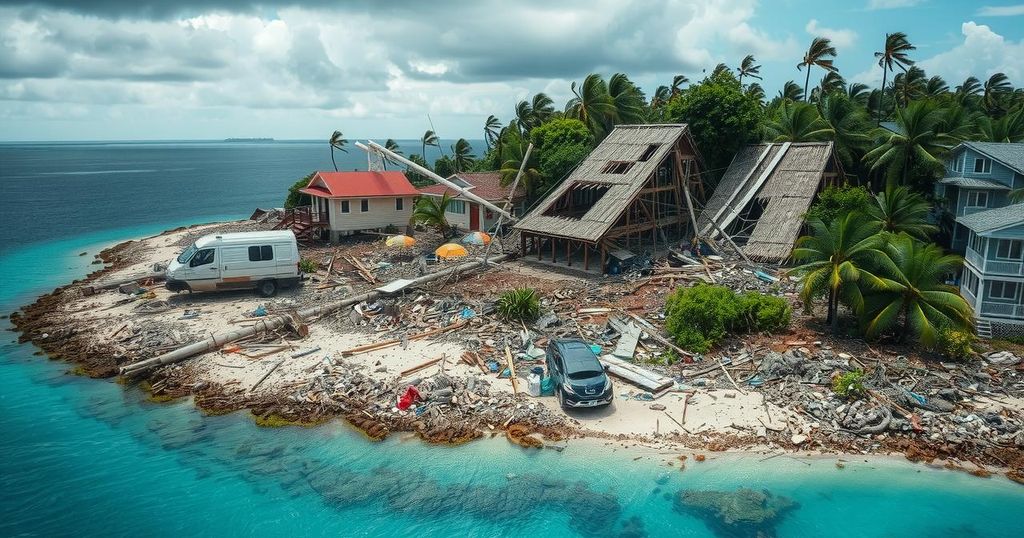Cyclone Chido, a devastating Category 4 storm, ravaged Mayotte, leading to significant destruction, loss of life, and widespread communication failures. Emergency assistance is being mobilized by the European Commission and several countries to aid the affected communities. This disaster highlights the vulnerability of certain regions to climate change and underscores the necessity for a transition to renewable energy sources.
Cyclone Chido, a Category 4 storm, devastated the French archipelago of Mayotte in December, leaving a trail of destruction unparalleled in the last nine decades. Winds reached speeds of 136 miles per hour, leading to the tragic loss of at least 35 lives, with concerns that this toll may rise further. The cyclone obliterated neighborhoods, schools, and hospitals. Communication systems were severely impacted, rendering nearly two-thirds of Mayotte inaccessible post-storm. Estelle Youssouffa, a member of the French Parliament from Mayotte, emphasized the dire situation, stating, “Everything has been razed.” In light of recent extreme weather patterns, the vulnerability of regions like Mayotte to ecological threats such as Cyclone Chido is alarming, given the previous storms in nearby Mozambique that left extensive damage and loss of life.
The European Commission is mobilizing emergency assistance to support the impacted communities in Mayotte as well as Mozambique. Contributing nations, including Belgium, Germany, Italy, and Sweden, have pledged to assist France in providing shelter and essential supplies. Furthermore, the EU’s Copernicus Emergency Management Service has generated critical maps to facilitate relief operations. The ongoing climate crisis, characterized by the escalation of extreme weather events, underscores the urgency of transitioning to renewable energy solutions that hold the potential to mitigate future disasters.
The recent cyclone in Mayotte reflects a broader trend of increasing intensity and frequency of natural disasters attributed to climate change. Occurring in a region already burdened by its exposure to extreme weather events, Cyclone Chido is part of a distressing pattern that includes the catastrophic cyclones that struck Mozambique a few years prior. Reports from organizations such as the French Development Agency highlight the growing vulnerability of the archipelago to climate-related impacts, emphasizing the need for urgent action against climate change. The changing climate creates an environment where powerful storms like Chido can thrive, with significant consequences for communities in their path.
In summary, Cyclone Chido has inflicted unprecedented damage on the island of Mayotte, revealing the critical impact of extreme weather intensified by climate change. The international response is crucial, with emergency aid being coordinated to support the affected populations. The event serves as a stark reminder of the environmental challenges that many regions face, underscoring the importance of sustainable energy practices to combat the effects of climate change. A collective effort to address these vulnerabilities and improve disaster resilience is essential for safeguarding future generations.
Original Source: www.thecooldown.com






